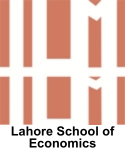Firms, Entrepreneurship & Microfinance
Barriers to Upgrading in the Sialkot Football Sector
Project members:
David Atkin, MIT
Azam Chaudhry, Lahore School of Economics
Shamyla Chaudry, Lahore School of Economics
Amit K. Khandelwal, Columbia University
Eric Verhoogen, Columbia University
The project has been developed under the International Growth Centre (IGC) and the Private Enterprise in Developing Countries (PEDL) initiative. In this project, the researchers investigate the extent to which high costs of high-quality inputs are a barrier to upgrading in the football sector. One of the primary inputs into football production is an artificial leather called rexine. They propose an experiment to offer subsidies for high-quality rexine to a random subset of firms and examine if this subsidy spurs upgrading. They will look at two related but distinct dimensions of behavioural responses by firms. First, since high-quality inputs are likely to be complements in production, the subsidy may induce firms to purchase complementary high-quality inputs and produce higher-quality footballs, using their existing technologies and production processes. Second, the subsidy may potentially stimulate learning and spur technological improvements in the production process, if for instance innovation has a higher return in high-quality segments of the industry or if producing higher-quality balls leads firms to transact with more knowledgeable buyers.


